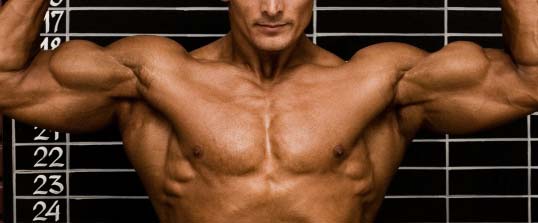Protein Supplement Myth Revealed by Body of Work

Most health stores are tainted with the irony that so few of their products are actually healthy, from herbal potions of unknown purity and utility to dietary supplements capitalizing on recent trends in weight loss or hair gain.
Now, two more studies question a longstanding staple at the health store, protein powder supplements, usually sold as a powder with testosterone-fueled names like Muscle Max 500 or Mega Monster Mass.
Such supplements are top sellers. But a growing body of research shows you don't need protein supplementation unless you are a professional-level athlete in intense training or perhaps gravely ill from starvation or a wasting disease, and even then the need would be a case-by-case call.
The new studies highlight the fact that the most benign thing about protein supplements is that you're only wasting money. You reap little benefit and instead put yourself at risk for kidney, bone and heart disease.
Do the math
Medical researchers have advised against protein supplements for years for the average person. But many sports trainers continue to push them on amateur athletes simply because they don't know any better.
You do need protein when you exercise, particularly when you try to build muscle through weightlifting or other forms of resistance training. The process of building muscle involves causing damage to muscle filaments and then rebuilding them, and this requires more protein.
Sign up for the Live Science daily newsletter now
Get the world’s most fascinating discoveries delivered straight to your inbox.
Yet unless the Mr. Universe competition is in your future, your diet likely supplies all the protein you need. The math is quite simple. When training, you need about a half gram of protein per pound of body weight. So a 180-pound male needs about 90 grams of protein a day. That's the amount of protein in a cup of milk or yogurt with breakfast (8–12 grams), a can of tuna with lunch (40 grams), and a six-ounce steak with dinner (42 grams).
Meat has a generous 6 to 10 grams of protein per ounce. But even vegetarians can get enough protein from vegetables, even while training hard.
Experts whey in
A study published last month, in the journal Nutrition, surveyed more than 1,000 adults at 50 ordinary commercial gyms and found that nearly half the men were taking dietary supplements, largely protein powders, with no supervision. None needed protein, the researchers concluded.
Similarly, a smaller study — a master's thesis by Martin Fréchette from University of Montreal — probed the diets of elite athletes, part of the Canadian Sport Centre Dietary Study. More than 90 percent of these athletes were taking dietary supplements, on recommendation of trainers or friends; only 25 percent could explain why they were taking it; and of those using protein supplements, more than 80 percent already had sufficient dietary protein intake.
More disturbing is how the protein habit starts early.
A 2008 study published in the Journal of Strength and Conditioning Research documented how protein supplements are common among high school athletes, who take the stuff largely on recommendation from coaches and friends under the misconception that protein equals strength.
False fuel
Few people in the United States suffer from lack of protein. The average non-exercising adult only needs about 60 grams a day. People who add powered soy, whey or other protein sources to their diet usually are just adding calories with no impact on muscle growth.
No studies have identified definitively short-term health problems from excess protein, but this has been associated with kidney failure, osteoporosis and heart disease. The reason is that unused protein cycles through the blood and ultimately breaks down into urea and acidic byproducts. These byproducts strain the kidneys as they filter through and likely trigger bone to release calcium. Very recent studies reveal how protein causes inflammation and increases the risk of clogged arteries.
Some protein powders, namely the ones with thunderbolts on the label, contain more than 100 grams of protein per serving. That protein alone is 400 calories, but usually other ingredients bump up the total to nearly 1,000 calories. You'd need a serious workout to process all that.
Some bodybuilders feel they need a gram of protein per pound of body weight, depending on the intensity of the training. If you do use a supplement, then it is best during or just after a workout so that the damaged muscles can use that protein for repair.
Note, however, that despite the word "fuel" in the names of many supplements, your muscles aren't burning protein unless you're in starvation mode. If you have the luxury to belong to a gym and spend time purposefully exercising, you're likely not starving.
- 5 Myths About the Male Body
- The Chemistry of Life: The Human Body
- 7 Solid Health Tips That No Longer Apply
Christopher Wanjek is the author of the books "Bad Medicine" and "Food At Work." His column, Bad Medicine, appears each Tuesday on LiveScience.

Christopher Wanjek is a Live Science contributor and a health and science writer. He is the author of three science books: Spacefarers (2020), Food at Work (2005) and Bad Medicine (2003). His "Food at Work" book and project, concerning workers' health, safety and productivity, was commissioned by the U.N.'s International Labor Organization. For Live Science, Christopher covers public health, nutrition and biology, and he has written extensively for The Washington Post and Sky & Telescope among others, as well as for the NASA Goddard Space Flight Center, where he was a senior writer. Christopher holds a Master of Health degree from Harvard School of Public Health and a degree in journalism from Temple University.









